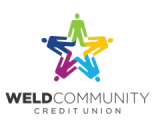Some of the financial terms flying around in the wake of the recently approved Coronavirus Aid, Relief and Economic Security (CARES) Act may be confusing. We have broken down some of the key components and how they relate to the COVID-19 pandemic.
Deferred Interest
What it means: Deferred interest is when interest charges on a loan or a line of credit are deferred or delayed for a specific period of time. The interest will usually accrue, or continue to grow, during such a deferral period. Call us and ask us about our Skip-A-Pay program.
How it relates to COVID-19: Many major credit card companies are allowing consumers to defer interest on their March and April payments due to the coronavirus. Also, as part of the Coronavirus Aid, Relief and Economic Security Act (CARES), lenders must stop collecting payments for federal student loans through Sept. 30. Interest will then be deferred throughout these six months and will not continue to accrue.
Forbearance
What it means: Forbearance is the delaying of a payment on a loan, such as a mortgage or auto loan. Interest generally continues to accrue. Any missed payments are either moved to the end of the loan’s term or are collected when the period of forbearance is over.
How it relates to COVID-19: The Federal Housing Finance Agency offered payment forbearance to homeowners affected by COVID-19, allowing them to suspend mortgage payments for up to 12 months. These loans, funded by lenders Freddie Mac and Fannie Mae, account for 66 percent of all home loans in the country. Many private lenders are offering homeowners forbearance at this time as well. Some state governments have also instructed all mortgage lenders in their states to offer forbearance for three months.
Freelancers
What it means: Freelancers are self-employed workers who sell their work or services by the hour or by the job.
How it relates to COVID-19: Under the CARES Act, freelancers are eligible for unemployment insurance.
Furlough
What it means: A “furloughed” worker is someone who is “out on furlough” – or temporarily laid off without pay.
How it relates to COVID-19: Millions of workers are now on furlough as companies temporarily shut down for complying with social distancing mandates, statewide orders to “shelter in place,” or due to a lack of business during the pandemic. Furloughed workers are eligible for unemployment insurance.
Gig Workers
What it means: Similar to freelancers, a gig worker, or independent contractor, enters into a formal agreement with a company to be on-call when the company needs to provide service to its clients, such as rideshare drivers working for Lyft or Uber.
How it relates to COVID-19: Under the Coronavirus Aid, Relief and Economic Security Act (CARES), gig workers are eligible for unemployment insurance.
Stock Buyback
What it means: Also known as a share repurchase, a stock buyback refers to a company’s reacquisition of its own stock. Stock buybacks are common when stocks are falling as the company will use its cash reserves to buy outstanding shares for reducing the number of available shares on the market.
How it relates to COVID-19: The CARES Act has prohibited stock buybacks for any individual while they are receiving government funds and for a full year for companies receiving federal loans at this time.
Unemployment Insurance
What it means: Unemployment insurance offers laid-off workers partial compensation while they are seeking a new job. Eligible candidates must have been laid off through no fault of their own and be actively seeking a new position or undergoing job training. Weekly benefits are determined by each state, generally capping at 60 percent of the worker’s former income.
How it relates to COVID-19: With millions of workers temporarily or permanently out of a job, unemployment benefits have been greatly expanded. Restrictions and qualifications have been loosened and an additional weekly $600 will be added to most checks for up to four months.

